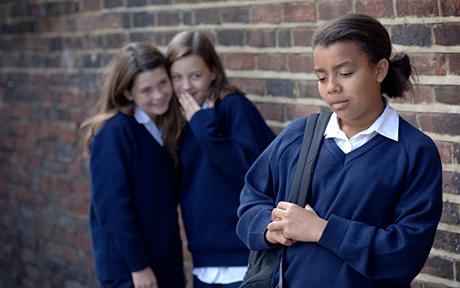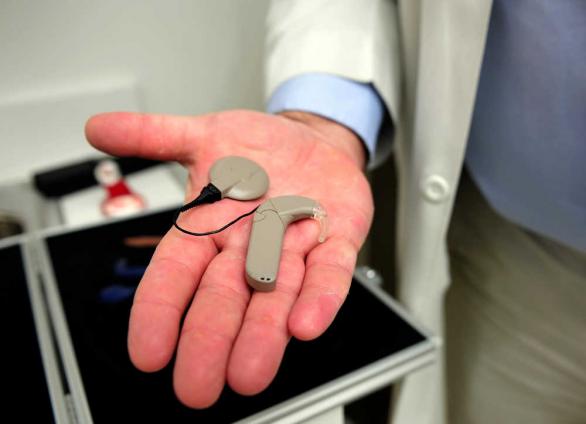No parent wants to discover that their child is being bullied. But unfortunately, bullying is as common in schools as textbooks. And children with special needs, like those with speech disorders, are 61% more likely to be the target of bullying, according to a study by Professor Gordon W. Blood, Ph.D., CCC-SLP. Blood proposed that children with speech disorders are particularly at risk for being bullied because they often appear more withdrawn. This can be due to a lag in communication and/or social skills. So how do you know if your child is being bullied? It can often be a little difficult to tell. Some children may try to cover up the problem. There are some classic signs of bullying that you can be on the lookout for, however.
Public or Private Speech Therapy?
Speech TherapistAfter your child was diagnosed with a speech disorder, you may have felt lost for a little while, but eventually you formulated a plan of attack. You probably read everything you could find on his specific speech disorder and talked to a few experts. Then, you had to make a choice between public or private speech therapy.
Public speech therapy refers to speech therapy that is administered by a speech-language pathologist (SLP) working in the school. Private speech therapy means that the SLP has her own practice or she works in a hospital or clinic. There is also a third option. You might live near a university with a speech clinic. You could enroll your child in speech therapy lessons with graduate students who are supervised by licensed SLPs. There are benefits and drawbacks to all three of these options and in the end, it really boils down to what’s best for your child and your family. Weigh the pros and cons carefully before making a decision.
Paying for Cochlear Implants
Financial Resources Hearing LossChildren are absolutely priceless. But unfortunately, the cost of raising a child has risen nearly 40% from a decade ago, according to CNN Money. Not including paying for college, the average two-parent, middle-income household spends $226,920 raising a child from birth until the age of 18. And that figure will only rise, especially in this turbulent economy with skyrocketing food prices.
Parents of children with special needs often struggle more than most to ensure that their children get the proper medical care and therapies that they need. When a child is born with severe hearing loss, his parents might consider cochlear implants (CI). But the cost of the surgery, the devices themselves, and the maintenance would leave your jaw dropping. Including the surgery and post-operative fees, the average cost of cochlear implants in the U.S. is $50,000 to $100,000, according to the Northern Virginia Resource Center for Deaf and Hard of Hearing Persons. And that doesn’t include purchasing a warranty to cover the cost of replacement parts later on. Fortunately, there is help for low-income families who wish their child to have cochlear implants.
Language Development Affected by Anesthesia?
NewsParents like to imagine what their child might grow up to be like, even while they’re still filling out their wedding invitations or decorating the nursery. With a little bit of luck, your child will grow into a healthy, happy adult without ever needing heavy-duty medical treatment for a serious issue. But life doesn’t always work out that way, and sometimes young kids have to undergo surgery. Surgery often requires anesthesia so that the child sleeps during the procedure without feeling any pain. There have always been risks and complications associated with anesthesia, such as stroke, lung infections, mental confusion, and heart attack. Fortunately, those complications are quite rare. And when compared to the potential consequences of not having the surgery, the choice is often a no-brainer. But recent evidence raises a new question: could anesthesia affect speech and language development?
Teaching Children Sight Words
Speech Therapy TechniquesReading is crucial for speech and language development. You might notice that your child “picks up” some words easily, while he struggles with others. There is a good chance that the words your child struggles with the most are sight words. Sight words are words that comprise roughly 50% to 70% of most text. Many of them cannot be “sounded out.” Your child will have to learn to recognize them on sight, hence the term “sight words.” You might sometimes hear “sight words” being referred to as “Dolch words.” They are the same thing. In 1948, Edward William Dolch, Ph.D., compiled The Dolch Word List, which lists 220 sight words.
Teachers often focus on sight words in kindergarten through third grade. Work with your child at home to develop his sight words skills to further his academic success. Collaborate with your child’s teacher and his speech-language pathologist (SLP) to determine the most effective learning methods for your child. For example, if he’s a visual learner, he might do best when presented with an image of the sight word.





